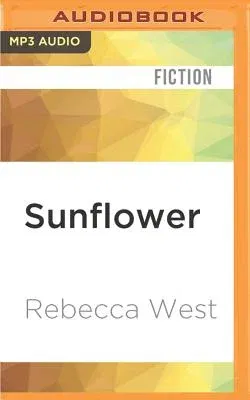A beautiful actress of the 1920s faces painful decisions about her
lovers and her future Star of the stage, Sunflower has everything but
the attention she craves from her long-time--and married--lover, Lord
Essington, a brilliant and intense man occupied with more intellectual
thoughts. Eager for a more rewarding experience, Sunflower must decide
whether another great man, the Australian Francis Pitt, will offer a
more traditional relationship and happiness.
Written during West's own psychoanalysis and never finished, Sunflower
ponders topics of the power struggle between the sexes, and a woman's
freedom to determine her romantic destiny. Drawn heavily from West's own
relationships with H.G. Wells and Lord Beaverbrook, this roman à clef
gives a glimpse of the author's own struggle to find a satisfying
relationship.
Dame Rebecca West, DBE (1892 - 1983) was an author, journalist, literary
critic and travel writer. A prolific author in many genres, West was
committed to feminist and liberal principles and was one of the foremost
public intellectuals of the twentieth century. She met H.G. Wells in
1913, after her provocatively damning review of his novel Marriage
prompted him to invite her to lunch. They fell in love, though Wells was
married at the time, and their affair lasted ten years producing a son.
In 1947 Time magazine called West, 'indisputably the world's number
one woman writer' and in 1954 Kenneth Tynan described her as, 'the best
journalist alive'. She was made CBE in 1949, in recognition of her
outstanding contribution to British letters.

